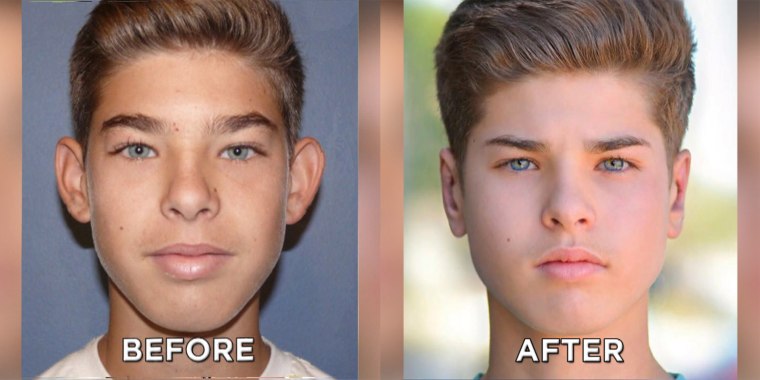Checking Out the Psychological and Social Aspects That Drive Individuals to Think About Plastic Surgery as a way of Renovation
The choice to seek cosmetic surgery frequently expands beyond mere appearances, intertwining with psychological and social dynamics that merit comprehensive assessment. Factors such as self-esteem, prevalent social elegance criteria, and the prevalent impact of social media assemble to shape private motivations for surgical enhancement.
The Role of Self-Esteem
Self-confidence substantially affects a person's decision to seek cosmetic surgical treatment. People with low self-esteem usually perceive themselves in a negative light, leading to feelings of inadequacy concerning their physical look.

Eventually, the function of self-esteem in the decision-making procedure relating to plastic surgery highlights the complex interaction between body image, personal contentment, and mental health. Recognizing this relationship is important for health care professionals to make certain that clients are making informed choices rooted in realistic expectations and emotional well-being.
Societal Elegance Criteria
Influenced by pervasive media representations and cultural stories, societal beauty criteria play an important duty fit individuals' assumptions of their own bodies. These standards are commonly characterized by an idyllic kind of charm that stresses traits such as symmetry, youthfulness, and slimness. As these suitables are perpetuated through different networks, consisting of movie, advertising and marketing, and television, people regularly internalize these messages, leading to discontentment with their natural look.
The implications of these social norms expand beyond aesthetic preferences; they can affect self-esteem, psychological wellness, and interpersonal relationships. People who view themselves as disappointing these criteria may experience feelings of insufficiency, motivating a need for cosmetic surgical treatment as a way of achieving societal authorization. This pursuit is frequently fueled by the idea that satisfying these perfects will enhance not just physical look however additionally social standing and individual gratification.

Influence of Social Network
The influence of social charm requirements is further enhanced by the increase of social networks systems, where curated pictures and idyllic representations of appeal are ubiquitous. Individuals are constantly subjected to filteringed system and edited pictures, which often portray unattainable physical characteristics. This exposure cultivates a society of comparison, leading people to evaluate their very own appearance against these often unrealistic criteria.
Social media influencers and celebrities regularly promote aesthetic procedures, stabilizing the notion that surgical enhancements are a practical means for achieving societal ideals (plastic surgery rancho cucamonga). The presence of these enhancements can create a perception that going through plastic surgery is a common method, consequently affecting individuals to think about comparable interventions as a path to boosted self-esteem and social acceptance
Additionally, the interactive nature of social media enables for prompt responses through likes and comments, further enhancing the need to adapt prominent appeal criteria. Such interactions can exacerbate sensations of insufficiency and drive individuals toward cosmetic surgical procedure as a method of obtaining recognition. Ultimately, social networks plays a critical duty fit perceptions of beauty, which dramatically affects the decision-making processes surrounding plastic surgery.

Cultural Viewpoints on Look
Across various societies, assumptions of look are deeply rooted in historic, social, and economic contexts, forming people' sights on elegance and worth. In many societies, appearance serves as a considerable pen of identity, influencing social standing, expert possibilities, and individual connections. For instance, in some societies, light skin is commonly connected with wealth and opportunity, while others might glorify darker complexion as icons of toughness and authenticity.
Moreover, standard charm criteria are often perpetuated through social stories, media depictions, and household affects, leading to varying perfects throughout various regions (plastic surgery rancho cucamonga). In Western cultures, the emphasis on young people and physical fitness frequently drives individuals more helpful hints toward cosmetic enhancement, while in specific Eastern cultures, even more refined modifications lined up with conventional aesthetics might be chosen
Globalization and the spreading of digital media have better made complex these characteristics, developing a hybridization of charm perfects that goes beyond geographical boundaries. As people increasingly browse these social narratives, the pressure to comply with specific appearance requirements can result in the need for plastic surgery, reflecting a complicated interplay of personal aspirations and cultural worths. Comprehending these cultural perspectives is necessary in attending to the inspirations behind plastic surgery considerations.
Emotional Impacts of Aesthetic Surgery
Lots of people seeking cosmetic surgical treatment report experiencing profound emotional impacts that can dramatically change their self-perception and psychological health - plastic surgery rancho cucamonga. The need for physical improvement typically originates from underlying issues such as reduced self-esteem, body dysmorphic disorder, or societal stress pertaining to elegance requirements. For some, the instant post-operative phase can cause a short-lived boost in positive self-image and fulfillment with their look, fostering a feeling of empowerment
Nevertheless, these positive feelings may not be sustaining. Research indicates that while some people experience enhanced self-esteem, others may deal with intense anxiousness or anxiety if their assumptions are not fulfilled. This disparity can arise from impractical perfects bolstered by media representation and cultural narratives bordering elegance.
Moreover, the emotional ramifications of cosmetic surgery expand beyond the individual. Relationships with friends and family might be strained as social characteristics shift, bring about feelings of seclusion or alienation. Eventually, the psychological effects of plastic surgery are intricate and complex, needing cautious factor to consider by both possible clients and doctor to make sure educated decision-making and reasonable expectations.
Verdict
To conclude, the decision to Home Page pursue cosmetic surgical procedure is considerably influenced by a combination of self-esteem issues, social charm criteria, and cultural point of views on look. The pervasive reach of social media further exacerbates these stress, promoting impractical perfects that people commonly aim to acquire. Understanding these social and emotional factors is vital look at this site for dealing with the inspirations behind cosmetic surgical procedure, highlighting the need for an extra nuanced discussion surrounding elegance and self-acceptance in contemporary society.
The choice to pursue cosmetic surgery often extends beyond plain looks, linking with social and psychological characteristics that warrant comprehensive evaluation. Eventually, social media plays a crucial function in shaping assumptions of appeal, which significantly affects the decision-making procedures bordering cosmetic surgical treatment.
As individuals significantly navigate these social narratives, the stress to conform to specific look criteria can lead to the need for cosmetic surgical procedure, showing a complicated interaction of personal goals and social worths.In conclusion, the choice to pursue cosmetic surgical procedure is considerably affected by a combination of self-esteem problems, social elegance criteria, and social viewpoints on look. Recognizing these emotional and social variables is necessary for attending to the motivations behind cosmetic surgery, highlighting the requirement for a more nuanced conversation bordering elegance and self-acceptance in contemporary society.